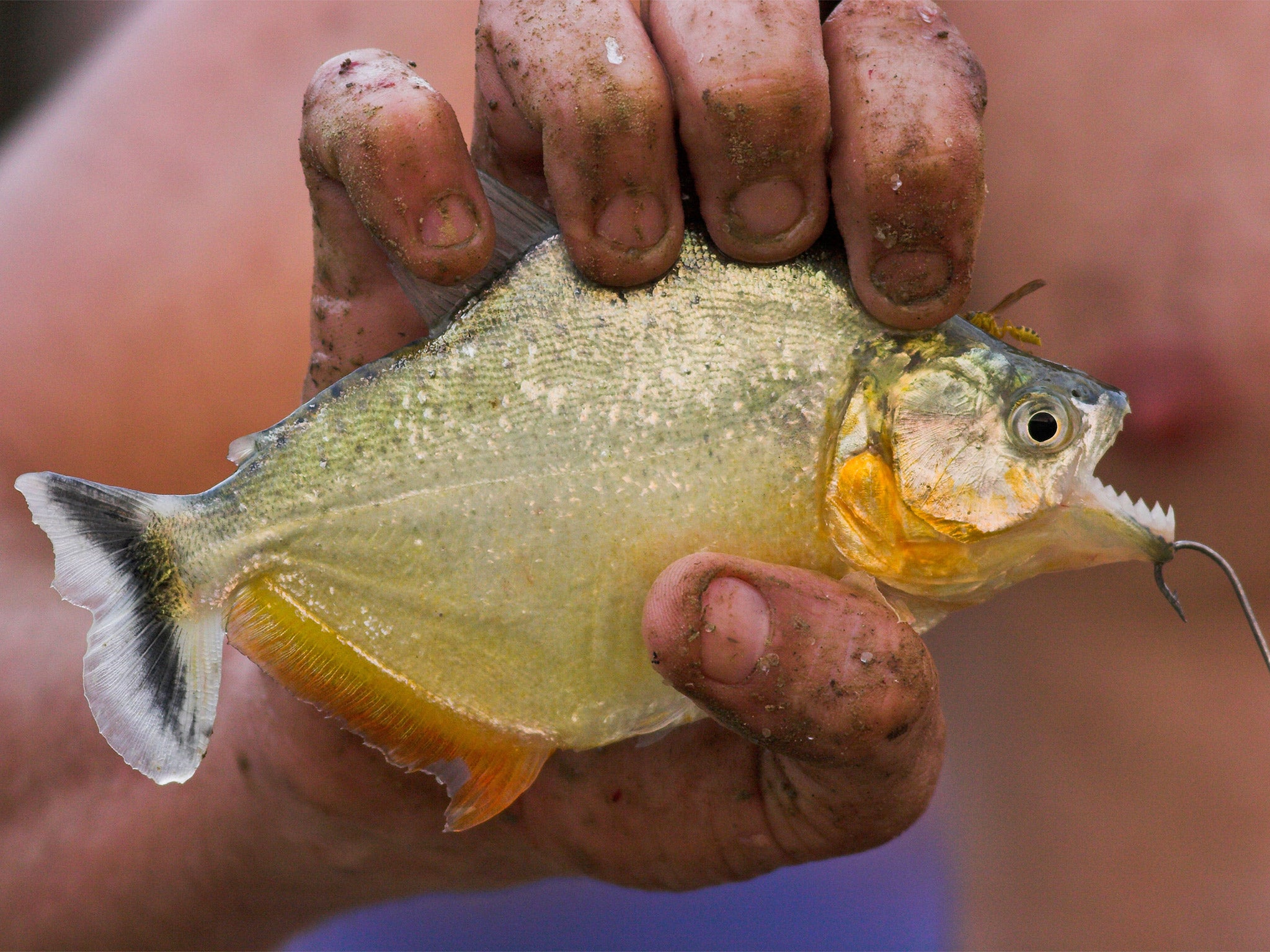Piranha attacks on swimmers in Brazil leave over 50 people injured as droughts force the lethal predators to migrate to deeper waters
This week at least eight bathers were bitten by the man-eaters, known as 'white bitches'

Your support helps us to tell the story
From reproductive rights to climate change to Big Tech, The Independent is on the ground when the story is developing. Whether it's investigating the financials of Elon Musk's pro-Trump PAC or producing our latest documentary, 'The A Word', which shines a light on the American women fighting for reproductive rights, we know how important it is to parse out the facts from the messaging.
At such a critical moment in US history, we need reporters on the ground. Your donation allows us to keep sending journalists to speak to both sides of the story.
The Independent is trusted by Americans across the entire political spectrum. And unlike many other quality news outlets, we choose not to lock Americans out of our reporting and analysis with paywalls. We believe quality journalism should be available to everyone, paid for by those who can afford it.
Your support makes all the difference.Hundreds of swimmers in Brazil are being warned to stay out of the water following a spate of attacks by shoals of deadly piranha, which has left more than 50 people injured in just over a month.
Unsuspecting tourists have had chunks of flesh bitten out of their hands and feet as drought conditions in the South American country force the lethal predators to migrate from their natural habitat to deeper waters packed with holidaymakers.
This week at least eight bathers were bitten by the man-eaters, known as “white bitches”, the 6in-long species blamed for the attacks, on beaches in Palmas, in Tocantins State, north-east Brazil. Three children were among the casualties as people took to the waters to cool off during the hot holiday weekend. A four-year-old boy had a chunk taken out of his heel.
Veraluci Milhomem’s toe was bitten on the same day. “I felt a stab of pain in my foot and started screaming,” said the 55-year-old administrative assistant. “My friends dragged me out of the water before anything else could happen.”
Also in the north-east in the last 10 days, 25 people reported vicious attacks scaring off swimmers in a popular stretch of the San Francisco river in the town of Pao de Acucar, in Alagoas.
Among the victims was student Lucas André da Silva, 15, whose heel was lacerated on Sunday. “I was playing in the river with friends when I felt something dig into me. I pulled my foot out of the water to see what had happened and saw a lot of blood. The bite still really hurts,” he said.
On a freshwater beach in Populina in Sao Paulo, south-east Brazil, 20 holidaymakers were injured by lone piranha. Juraci de Souza, 42, was just getting out of the Rio Grande when it happened.
“I was swimming to the shallower part of the river when I felt a twinge. As I came out onto the sand I saw that I was bleeding heavily from my foot,” said the forklift truck driver. “Thankfully I’d been bitten by a bitch [piranha]. If it had been a whole school it would have been much worse,” he said.
According to Bruno Benhocci, a biologist at the Votuporanga University in Sao Paulo, the unusually high numbers of piranha plaguing the waterways could be linked to drought conditions in recent years which has affected food supplies.
“In the absence of their natural food, piranha are moving from shallow areas to deeper parts where they can find it,” he said. “Piranha can’t detect whether a movement is made by a finger or a fish, they just bite what they can get.”
The predators can smell blood up to two miles away and pound for pound their sharp toothed bite is more powerful than a great white shark’s and three time stronger than that of an alligator.
Every year hundreds of piranha attacks are reported in South America. The most frightening in Brazil was in 2011 when a series of incidents left 100 people injured. In 2012, a five-year-old girl died after she was eaten by piranhas when her canoe capsized in the Amazon.
Join our commenting forum
Join thought-provoking conversations, follow other Independent readers and see their replies
Comments